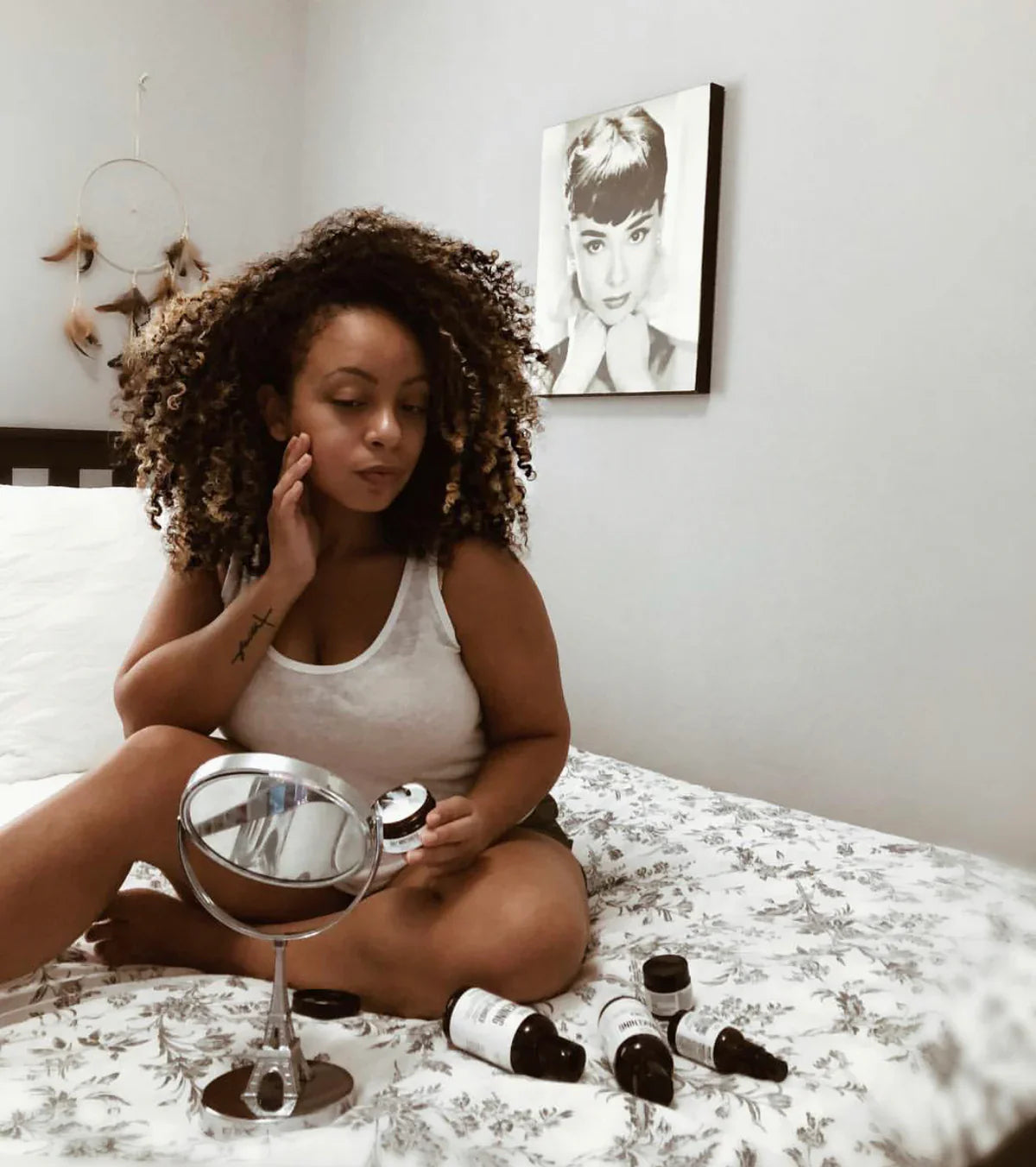Collagen 101

Collagen is the most abundant protein in the body. It helps give structure to your hair, skin, nails, bones, ligaments and tendons. It is even present in your vagina yes your vagina. Our bodies produce collagen on a regular basis but as we begin to age that production slows down, lifestyle habits like smoking, sun exposure and an unhealthy diet all slow down collagen production. Certain health conditions like lupus or rheumatoid arthritis can also slow down collagen production. Wrinkles, sagging skin, thinning or flat hair are all a few of the tale-tell signs that your body needs more collagen. Maintaining your skins strength and structure is vital in keeping it firm and in maintaining its elasticity. Even though our collagen production will naturally decline with age you can still protect it and slow down its loss. If you’re curious about collagen and its role in your skin health keep reading this week’s article for more details.
The Role of Melanin
Melanin in darker skin tones helps it to delay skin aging. Melanin provides a protective barrier against the effects of ageing, however over time melanin rich skin WILL experience collagen and elastin break down. Smoking, advanced glycation end products from sugary foods, genetics, hormone depletion which may result in estrogen decline during menopause all break down collagen. So, while initially your melanin provides protection from skin aging over time without proper skin support collagen and elastin production will decline.
Should I Drink It, Eat It or Mix It?
Collagen pills, powders and supplements are everywhere, most claim to boost the body’s natural production of collagen and restore its tone, texture and skin suppleness. But do they really work? While individual results vary our YELLE Skincare Team thinks it would be difficult for the collagen you’re eating and drinking to get to your skin. In her insights featured on self.com Zhaoping Li, M.D. director and division chief at the UCLA Center for Human Nutrition explains when you ingest collagen, it is broken down into amino acids which have to then make it into your bloodstream. If they do make it into your bloodstream they then have to be in a form that can be broken down and absorbed by your body. After that they are distributed throughout the body and go to the areas that need it the most….. usually your major muscles. So the chances of a collagen supplement making it to the skin are not that high.
Prevention is Key
When it comes to stimulating collagen prevention is EVERYTHING. In addition to wearing sunscreen, using retinoids and getting plenty of rest. Be sure to moisturize the skin and engage in a complete skincare routine every day. Our YELLE Skincare Awakening Daily Moisturizer along with our YELLE Awakening Skincare Systems protect the skin against free radical damage by keeping it hydrated and clear of oxidative stress.
Are you protecting your collagen? You don’t have to be afraid to age gracefully with YELLE Skincare. Choose anyone of our Awakening Skincare Systems and start your journey to better skin health today.
Written By Regina Tucker




Comments
Rita H.Gregory —
I am eager to try some of YELLE Products. I hope I can pass it along to my girls.😊 I hope it is Not too expensive for every day folks.